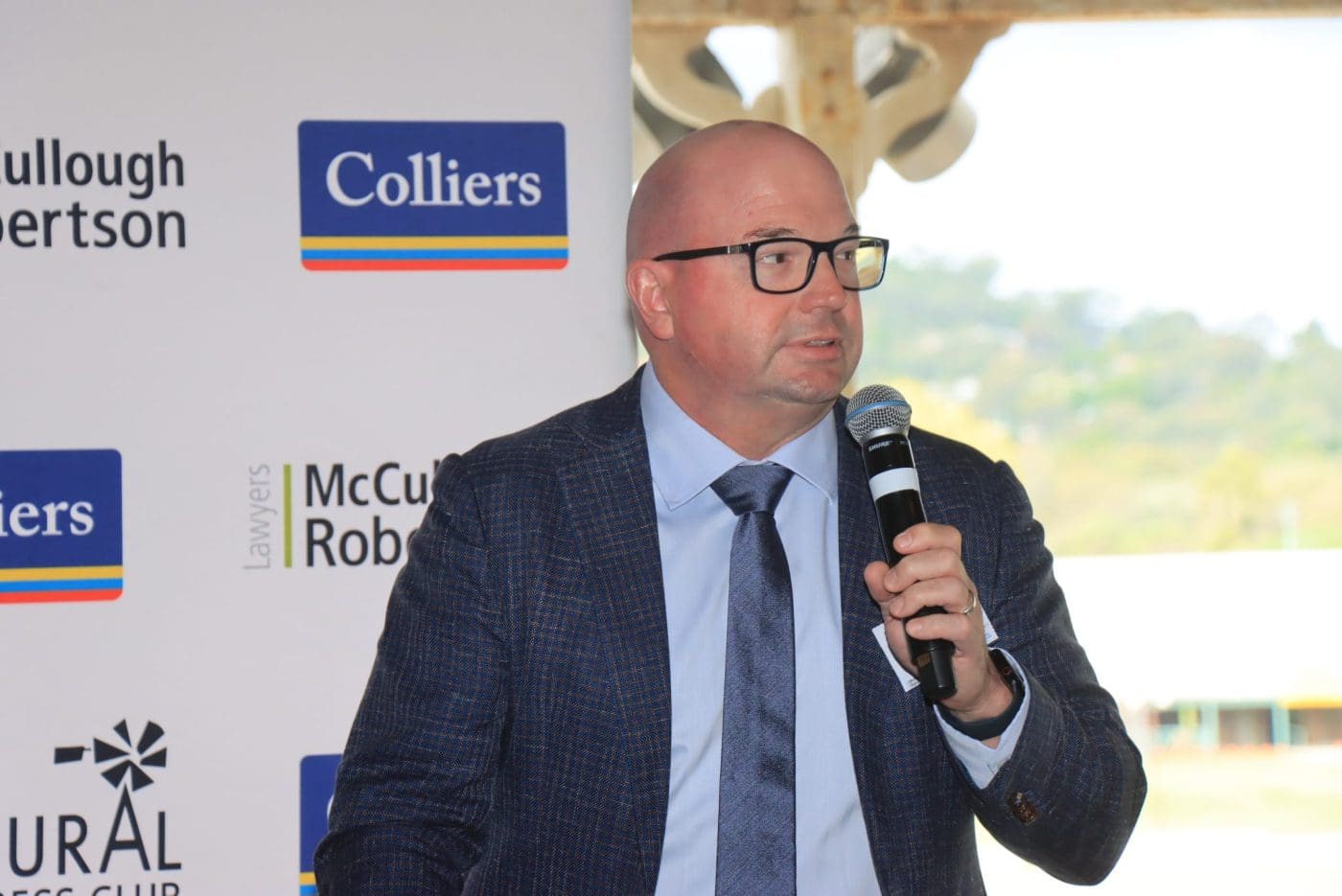THE chicken and pork industries have given an insight into the RSPCA’s role in their sectors – a decade after Australia’s two major supermarkets started marketing products with the animal-welfare group’s tick.
 Plenty has been said this year about the role of the RSPCA in the livestock industry, particularly with its successful campaign to ban live sheep exports and ongoing campaign against live cattle exports. Supermarket Coles has also been marketing the RSPCA-approved logo in some hybrid beef and chicken sausages.
Plenty has been said this year about the role of the RSPCA in the livestock industry, particularly with its successful campaign to ban live sheep exports and ongoing campaign against live cattle exports. Supermarket Coles has also been marketing the RSPCA-approved logo in some hybrid beef and chicken sausages.
The RSPCA-approved programs were discussed briefly at last week’s Australian Property Institute rural conference in Toowoomba – with Australian Chicken Meat Federaton director David Bray and SunPork chief executive officer Robert van Barnaveld talking about the future of protein on a panel discussion.
Chicken meat industry sees benefits
Mr Bray said the more than 90pc of the chicken industry was now being independently assessed and accredited with the RSPCA-approved logo.
“There have been a lot of benefits to the RSPCA Approved Farming Scheme becoming embedded within our industry, it has changed the way we grow and process our birds”, he said.
The scheme involves close to 400 individual requirements that chicken meat farms and processing facilities must abide by and includes standards for both conventional (indoor) and free-range (outdoor) operations.
The requirements are regularly reviewed for currency, against the latest scientific and animal welfare developments. Mr Bray said the scheme has been highly impactful for the industry.
“The reality of the scheme is that it operates at a level that is significantly above State and Commonwealth legislative and policy requirements, and as such, has uplifted the entire industry’s animal welfare performance to be above and beyond simply meeting legislation.
“This model is fairly unique in the world, with very few other independently operated and voluntary accreditation system being able to have such a demonstrable animal welfare impact across an entire industry.”
Mr Bray said making the RSPCA requirements work in a commercial setting had its challenges.
“No doubt there are commercial challenges and costs associated with operating at the gold standard for animal welfare that is over and above legislative requirements”, he said.
“But such is the strong and collective desire of the industry to ensure that animal welfare is paramount in our operations”.
Another challenge for the RSPCA-approved requirement is managing the current avian influenza outbreak in the southern states, with chickens that needed access to the outdoors now needing to be kept indoors.
SunPork not adopting RSPCA-approved
While the chicken industry has seen a large uptake of the RSPCA-approved program, Australia’s largest pork producer SunPork has decided not to go down the path. SunPork has farms, abattoirs and food businesses.

Dr Robert van Barneveld pictured speaking at a Queensland Rural Press Club lunch in Toowoomba in April.
When asked why the company had not to go down the RSPCA-approved path, Dr van Barneveld said it was because it would be difficult to comply with the current RSPCA standards for intensive systems.
“We have a very strong working relationship with RSPCA and they are the only welfare group we want to engage with, we don’t engage with activists,” he said.
“The only RSPCA approved pork I am aware of is free range pork, which generates great perceptions in the consumers’ mind.
“While lack of close confinement, space and enrichment are all positives in free range systems, they also have downsides including optimising welfare in wet winters and hot dry summers and managing the environmental impacts of the farming system. They are also not representative of the bulk of pig production in Australia”
When considering RSPCA-approved credentials for intensive systems, Dr van Barneveld said the company and the RSPCA had agreed on some initiatives and disagreed on others.
“Under the current RSPCA-approved standards for intensive systems, we believe we could develop compliant options for breeding animals, but we are yet to reach agreement on space allowances, flooring types and enrichment types for progeny pigs,” he said.
“Even if we agreed on the standards from a welfare perspective, it is unlikely we could practically adopt them in an intensive production system.
“We also need a much stronger evidence-base around space allowances and enrichment sources before we make commercial changes. If we adopt an RSPCA-approved tick on our products, we want to make sure it is there for the right reasons, not just marketing.”
